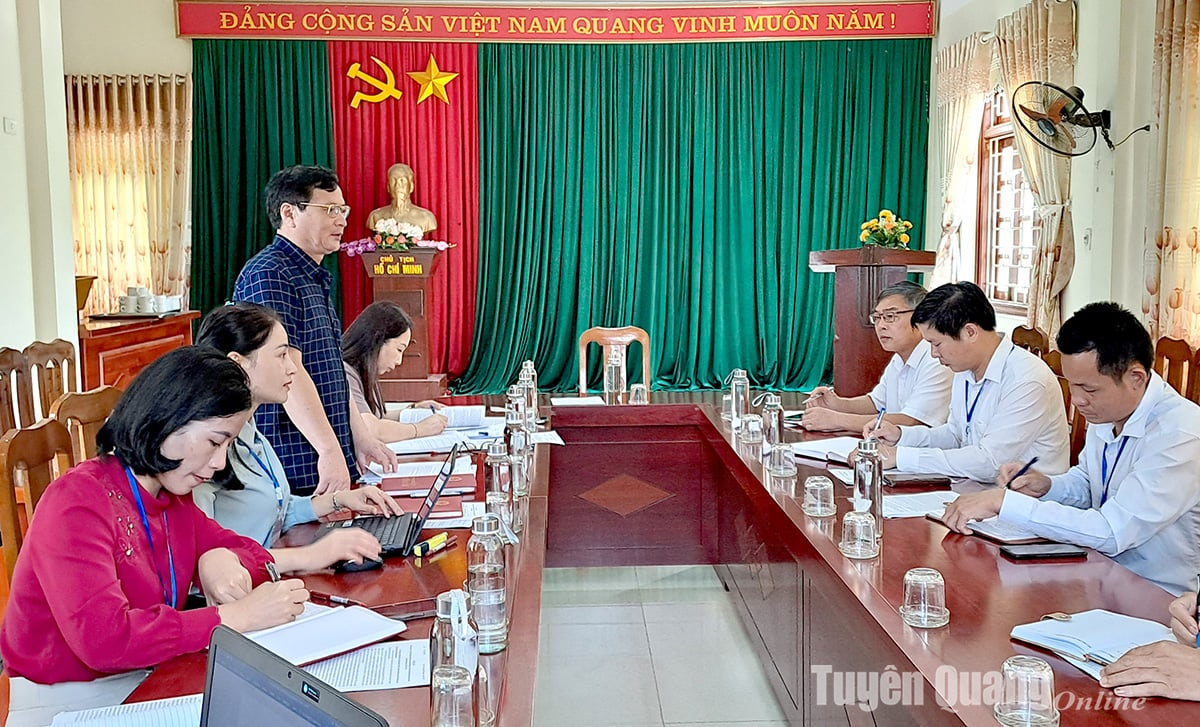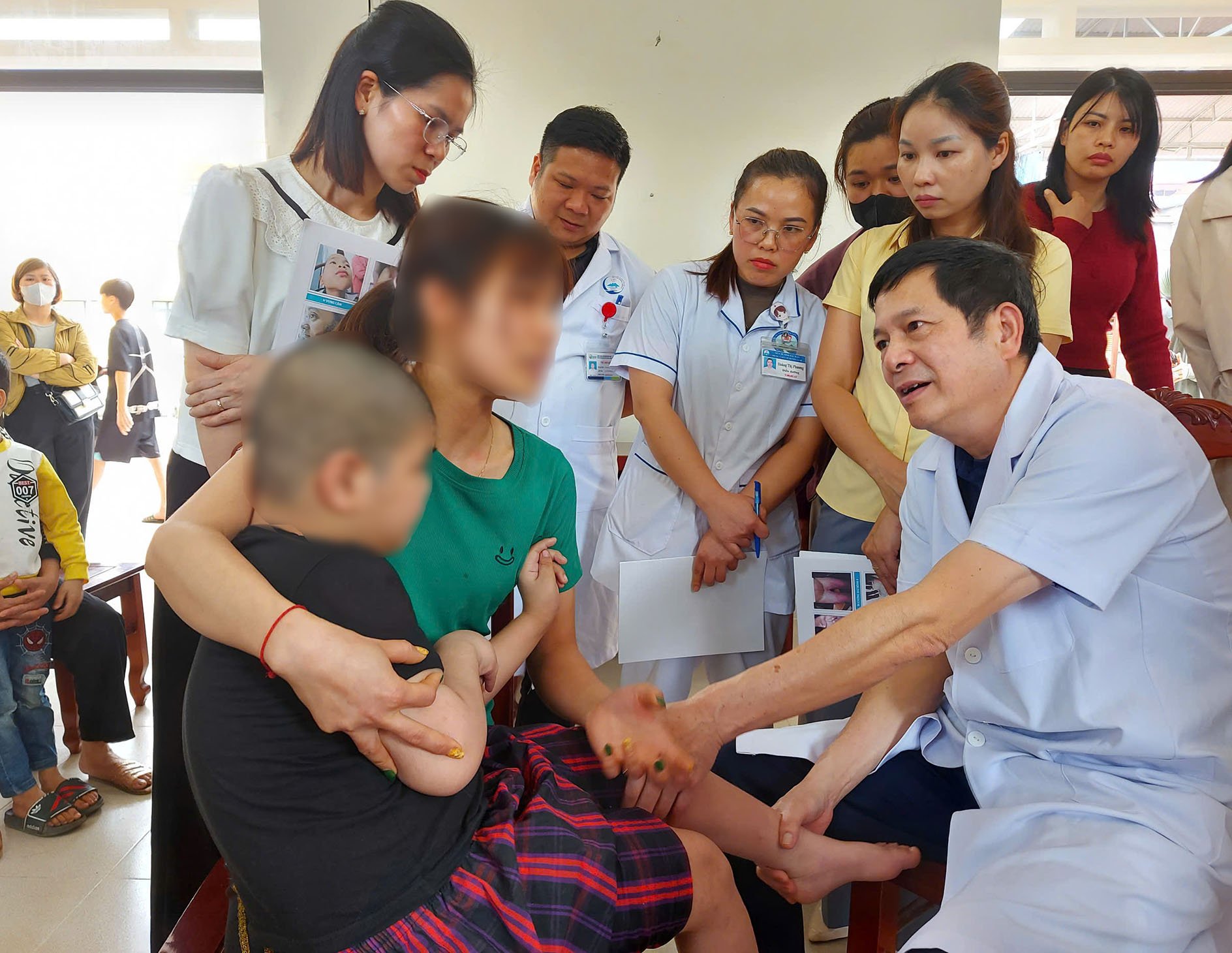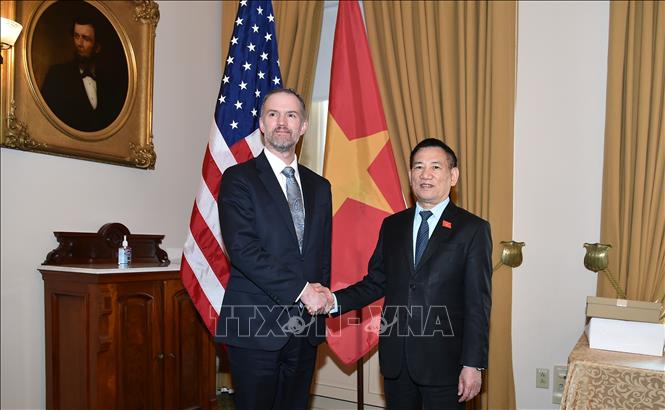On the morning of February 2, Prime Minister Pham Minh Chinh and Deputy Prime Minister Le Minh Khai, Head of the Steering Committee for Innovation and Development of Collective Economy (KTTT) and Cooperatives, chaired the 2024 cooperative economy forum with the theme "Improving State support policies according to Resolution No. 20-NQ/TW dated June 16, 2022 - Driving force to promote the development of KTTT and cooperatives in the new period".
Provincial leaders attended the forum at Thai Binh bridge.
The forum was held in person at the Government Headquarters and online to 63 provinces and centrally-run cities. At the Thai Binh bridge, comrades: Nguyen Khac Than, Deputy Secretary of the Provincial Party Committee, Chairman of the Provincial People's Committee; Nguyen Quang Hung, Member of the Provincial Party Committee Standing Committee, Permanent Vice Chairman of the Provincial People's Committee attended the forum.
According to the report, in 2023, the whole country will have about 31,700 cooperatives, 158 cooperative unions and 73,000 cooperative groups, an increase of about 2,200 cooperatives, 23 cooperative unions and 2,000 cooperative groups compared to 2022. In 2022, the average revenue of cooperatives will reach 3,592 million VND, an increase of 935 million VND compared to 2021; the average profit of cooperatives will reach 366 million VND. By June 2023, the whole country will have 1,718 agricultural cooperatives applying high technology and digital technology in production and business, with over 4,330 agricultural cooperatives undertaking the consumption of agricultural products, equal to 24.5% of the total number of agricultural cooperatives.

Delegates attending the forum at Thai Binh bridge.
At the forum, delegates shared the same opinion: Developing the collective economy, with cooperatives as the core, has always been the consistent goal of the Party, State and Government. The collective economy not only helps stabilize and develop production and business but also creates jobs, increases income, supports hunger eradication and poverty reduction, and stabilizes members' lives. However, reality shows that policies to support the development of collective economy and cooperatives still have many limitations and have not yet achieved the expected effectiveness.
In the spirit of the Prime Minister's direction, at the forum, leaders of ministries, branches, experts and scientists from international organizations shared experiences and contributed opinions related to perfecting the legal corridor; policy institutions, digital transformation, green transformation, circular economy to develop the cooperative economic model in a sustainable direction. Local leaders and representatives of cooperatives proposed and recommended to the Government, central ministries and branches to have specific land planning so that cooperatives can fully exploit their potential and strengths. Along with that, there is support for policies related to finance and taxes so that cooperatives can access capital sources, expand production scale, access markets and access distribution channels.
Acknowledging and basically agreeing with the enthusiastic, profound and practical opinions of the delegates; concluding the forum, the Prime Minister emphasized that collective economy and cooperatives must clearly perceive and proactively overcome inherent barriers and obstacles to rise up; strongly change their thinking and actions towards the strong application of modern science and technology, green transformation, digital transformation; develop both the quantity and quality of members and participating labor force; focus on improving the efficiency of capital use, increasing labor productivity, and strengthening linkages along the value chain.
To achieve the goals set out in Resolution No. 20, the Prime Minister requested to promptly develop and promulgate guiding documents for the 2023 Law on Cooperatives, in a synchronous and unified manner with the 2023 Law on Cooperatives; research and complete regulations on internal lending activities in cooperatives and cooperative unions, contributing to eliminating "black credit" in rural areas. Ministries and branches must complete appropriate support policies for agricultural cooperatives, associated with new rural construction; specify land support policies for cooperatives in the spirit of Resolution No. 20 and the 2023 Law on Cooperatives.
The Prime Minister directed relevant ministries and branches to study the mechanism for allocating investment capital for development to implement projects supporting cooperative infrastructure; balance resources to implement cooperative support policies, especially those under the responsibility of the central budget; further strengthen the role of the Cooperative Economic Forum in promoting connection and cooperation among cooperatives, between cooperatives and other economic sectors and with organizations, experts and scientists; enhance the role of representative organizations, the core of which is the Cooperative Alliance at all levels, especially in propagating and criticizing policies; act as a bridge to implement and increase access to policies; advise and support cooperatives.
The Prime Minister requested to build and develop cooperatives in the spirit of solidarity, consensus and production and business activities for the common goals of members and the cooperative; to build a team of cooperative managers who are well-trained, have knowledge of economics, finance, business and other basic skills.
The Prime Minister affirmed that the Government always encourages and creates all favorable conditions according to the law for the collective economic and cooperative sectors to develop rapidly and sustainably, contributing increasingly positively to the overall socio-economic development achievements of the country.
Ngan Huyen - Manh Thang
Source




![[Photo] Prime Minister Pham Minh Chinh chairs meeting to discuss tax solutions for Vietnam's import and export goods](https://vstatic.vietnam.vn/vietnam/resource/IMAGE/2025/4/10/19b9ed81ca2940b79fb8a0b9ccef539a)
![[Photo] Phuc Tho mulberry season – Sweet fruit from green agriculture](https://vstatic.vietnam.vn/vietnam/resource/IMAGE/2025/4/10/1710a51d63c84a5a92de1b9b4caaf3e5)



















![[Photo] Unique folk games at Chuong Village Festival](https://vstatic.vietnam.vn/vietnam/resource/IMAGE/2025/4/10/cff805a06fdd443b9474c017f98075a4)


































































Comment (0)